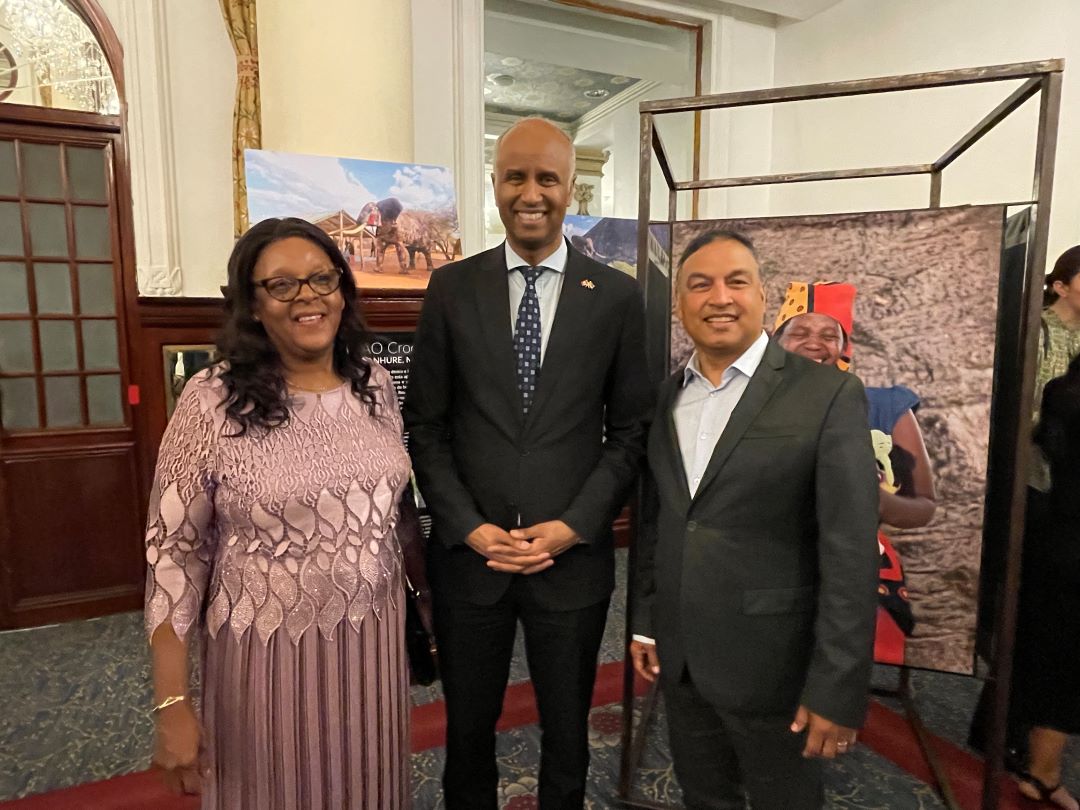
USask-led reproductive health and rights initiative receives $20 million
SASKATOON -- Researchers from the University of Saskatchewan (USask) are developing a comprehensive health and rights program in Mozambique.
Health-care researchers from USask received $20 million from the Government of Canada for a massive international development project to improve education, treatment, infrastructure, and service for sexual, reproductive health and rights of girls and young women in Mozambique.
Spearheaded by Dr. Nazeem Muhajarine (PhD), a professor in Community Health and Epidemiology in the College of Medicine and the director of the Saskatchewan Population Health and Evaluation Research Unit, the project will comprehensively incorporate innovative solutions to support the rights and health of women and young girls across six districts and 30 partner communities in the Inhambane province of Mozambique.
“USask researchers are embodying what it takes to be the university the world needs in health-care research,” said Dr. Baljit Singh (PhD), vice-president research, USask. “It is gratifying to see the support and recognition for Dr. Muhajarine and his team as they work with our international partners to support this groundbreaking work in improving equity and health of women and young girls in Mozambique.”
The funding for the project is part of a $65 million package marked for a series of international development projects and was recently announced by the Honourable Ahmed Hussen, Canada’s Minister of International Development.
The project will work to establish “model communities of care” in those six districts that can serve as examples for high-quality care and education for the sexual and reproductive health and rights of young women.
Muhajarine, who was in Mozambique when the funding was officially announced, said he was “excited” to continue working with the community in Inhambane.
“The announcement came with a sense of relief, and also a deep sense of gratitude for the work we have done and the partners we have worked with,” he said. “We felt that we were doing the right thing, and that it has been acknowledged (by the Government of Canada)."
The strong partnership between USask and Mozambique for this work began in 2017 with the Mozambique-Canada Maternal Health Project aimed at addressing high rates of maternal mortality in Sub-Saharan Africa, through the empowerment of women.
The new funding, spread over seven years, will build on the work that Muhajarine’s team and their community partners have already started in providing support for sexual and reproductive health and rights in the region. Previous work by Muhajarine and his team has created lasting partnerships with health care and government officials in Mozambique and established maternity waiting homes (MWH) to support pregnant women and new mothers. Construction of an additional MWH, a maternity health centre, and renovations to a pediatric nursery in the provincial hospital will be part of the upcoming project phase.
Muhajarine said their strategy to assist women’s rights and health is focused in three pillars: community engagement, health care system improvements, and research and dissemination.
“It’s a multifaceted problem. There’s a lot of social, cultural, historical, economical and attitudinal aspects ... that create this lack of access to services and disparities along gender lines,” he said.
Through the course of the project’s next phase, seven “primary care centres” will be built in participating communities where health-care workers can provide supports and informed consultation to members of the community.
In addition to direct infrastructure developments, Muhajarine said they are working to build out “micro-projects” guided by the community to create sources of steady income for young people in the community. The goal, he said, is to battle socioeconomic issues such as poverty that might keep the community from accessing health care and education.
And as a long-term research project as well as an international development project, Muhajarine said his team takes the time to examine the effectiveness of each support as they are attempted. That research is provided to community and health care partners and published in journals so other researchers and organizations can learn from the USask team’s work.
“The outcomes I would like to see are both quite tangible and also intangible,” he said. “I like to see girls and young women take their central place in their communities, that young women and girls are respected by the community, and they are empowered to make decisions and to take control of their lives.”
-30-
For more information, contact:
Daniel Hallen
USask Media Relations
daniel.hallen@usask.ca
306-966-6922
Article re-posted on .
View original article.

